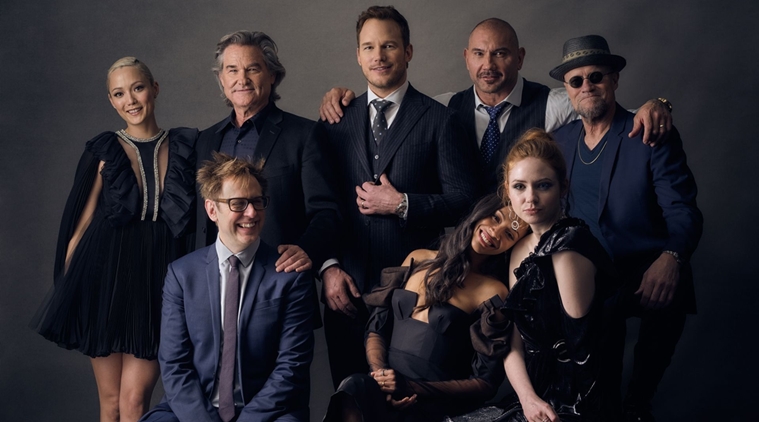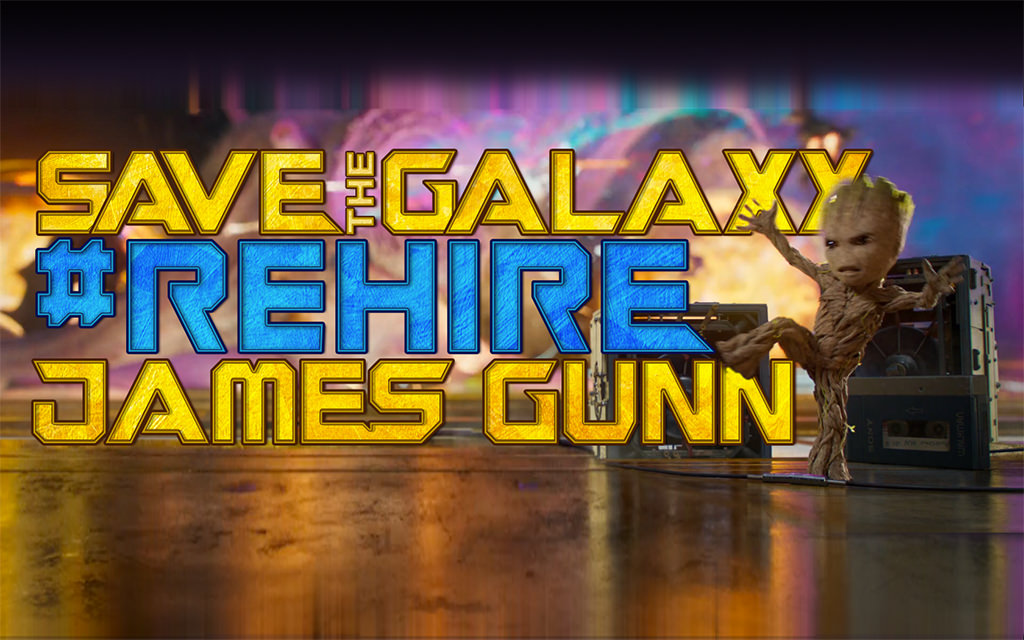James Gunn has been rehired by Disney to direct Guardians of The Galaxy 3 after he was fired last year for controversial tweets he posted in 2009. Disney’s decision to forgive Gunn concludes a year-long campaign that has grappled with the complexities of redemption in an online world.

In the summer of 2005, I stood before my brother and offered a begrudging apology for throwing his beloved Tamagotchi into the ocean. Unbeknownst to me – or so I said – this Tamagotchi couldn’t survive salt water. Who knew? My brother certainly did and he seemed struck by a grief that was as real – as if he was finally coming face-to-face with the impermanence of life. It was spectacular. At least, it was enough to solicit a whispered apology and a forced hug. Of course, I wasn’t sorry at all, but I was also a horror of a 10-year-old.
Let’s say my Tamagotchi coup d’etat was live-streamed in 2019. My apology would probably find its way into that ever-increasing sub-genre of YouTube apology videos and hopefully get monetised. Or maybe I’d apologise via Instagram live-feed to my 75 followers. Maybe I’d write a letter of apology filled with publicist-approved sincerity. Or perhaps I could go into hiding for years, returning only when my World War II film could secure an Oscar nomination.
After all that, maybe I’d be forgiven.
Every week there’s a limitless slew of apologies that flood our feeds and beg us for forgiveness. The path that celebrities must take to sincerely apologise “sincerely” is well-worn. Last week, Shane Dawson had to apologise for sexually abusing a cat (?). Last year, Kevin Hart lost his job as Oscars-host when he refused to apologise for homophobic tweets he had made in the past – and for which he had apologised previously.
James Gunn faced a similar public reckoning when the skeletons in his Twitter-archive were exhibited for all to see in July 2018. In the uncovered tweets, Gunn seemed to joke about paedophilia and rape. He also tweeted an endorsement for various alt-right 9/11 conspiracies. Tweeted in 2009, Gunn’s comments made us all shiver and Disney were quick to fire him in response.
And so, it was written in stone: Gunn was cancelled, and the world was all the better for it.
But then the cast of Guardians of The Galaxy signed a letter in support of Gunn, Selma Blair quit Twitter in protest and fans even funded a Billboard asking Disney to rehire him. Plus, there was Gunn’s sincere request for forgiveness and the fact that an alt-right news outlet leaked the Tweets to attack him. Suddenly the waters got a bit muddier.

Underpinning the conversation about Gunn’s tweets and his appeal for forgiveness was a question: What does it take for someone to be redeemed?
It’s not an easy question to answer, especially considering the secondary questions that come with it. Questions of motive: “Is Gunn simply apologising to be rehired by Disney?”. Questions of morality: “How wrong are these tweets exactly?”. These are all questions that orbit any appeal for forgiveness and in the online world, these questions become particularly fraught.
It’s impossible, even dangerous, to forgive and forget previous wrongdoings. There are people that each of us would reel at hearing ask for forgiveness. Whispers of Harvey Weinstein, or any sexual abuser, peeking out from under the solidified walls of #MeToo to seek redemption is swiftly, and justifiably, met with a resounding “No”. There are those that are just undeserving of forgiveness. Moreover, there are those that are redeemed too easily. The question of whether Mel Gibson should be forgiven (he shouldn’t) was never really answered. Instead, it simply quietened down enough until he could find a way back into Oscar nominations. (There’s that ole debate about art versus the artist circling around here but let’s leave that for the minute).
One can see why the online community might be hesitant to subscribe to the redemption narrative put forward by Gunn. Whether his tweets are wrong or not seems pretty black and white; making light of paedophilia, rape and homophobic violence, is not okay. It’s consequently understandable that most would paint him with a broad stroke that reads “unforgivable”. But it’s not a question of whether Gunn’s tweets were wrong – something Gunn already conceded to in his apology – but rather if someone who tweets these things can be forgiven and what this redemption should look like.
When asked why she came out in support of Gunn, Zoe Saldana made it clear that the decision to rehire Gunn is an act of forgiveness. “The message of redemption is important,” Saldana said in an interview for ET. Tens of actors, friends and peers came out with a similar call to forgive Gunn. The waters of zero-tolerance suddenly got muddier. Is it enough that Gunn has a wealth of glowing character references? Is it enough that he’s been outspoken about various progressive political issues in the ten years since 2009? Who does it need to be “enough for” exactly?
The question of “who” gets to impart forgiveness in this online landscape is a particularly interesting one. Forgiveness clearly has wider economic repercussions – a sizeable Disney pay check in this instance – but these repercussions are also personal in character. Forgiving a celebrity always pushes a personal decision into the throngs of audience consensus. It’s one’s subjective decision to forgive multiplied to an immense scale that subsequently carries much greater stakes. A company chooses to forgive Gunn, an audience or entire cast chooses to support him, and survivors of trauma show us the very real impact of his comments. Once your personal choice has been made, you’re thrown into a legion of people divided on both sides of a moral line.
Thrown into this space, forgiveness becomes just one of many things that galvanises difference and as a result, opposition. Both sides are invested in convincing the other. The waters aren’t murky, the decision is clear, and Gunn is irredeemable. Or Gunn has apologised, he’s changed, and he deserves forgiveness (plus I love his movies).
Online, these discussions become as much about group spectatorship and solidarity as they are about sharing a personal decision. Likewise, it can be more about how a celebrity manages the tides of this unpredictable group than whether they are genuinely sorry. For Gunn, the scales tipped in his favour and we’ll be expecting another neon-packed iteration of the Guardians franchise in the future.
But if Gunn’s redemption shows us anything, it’s that the message of redemption is not only important but something we’ll have to contend with more and more as time goes on. In other words, the question of forgiveness is a question worth considering.
Sorry for throwing your Tamagotchi in the ocean, brother.
Let us know what you think about this ongoing debate in the comments.






